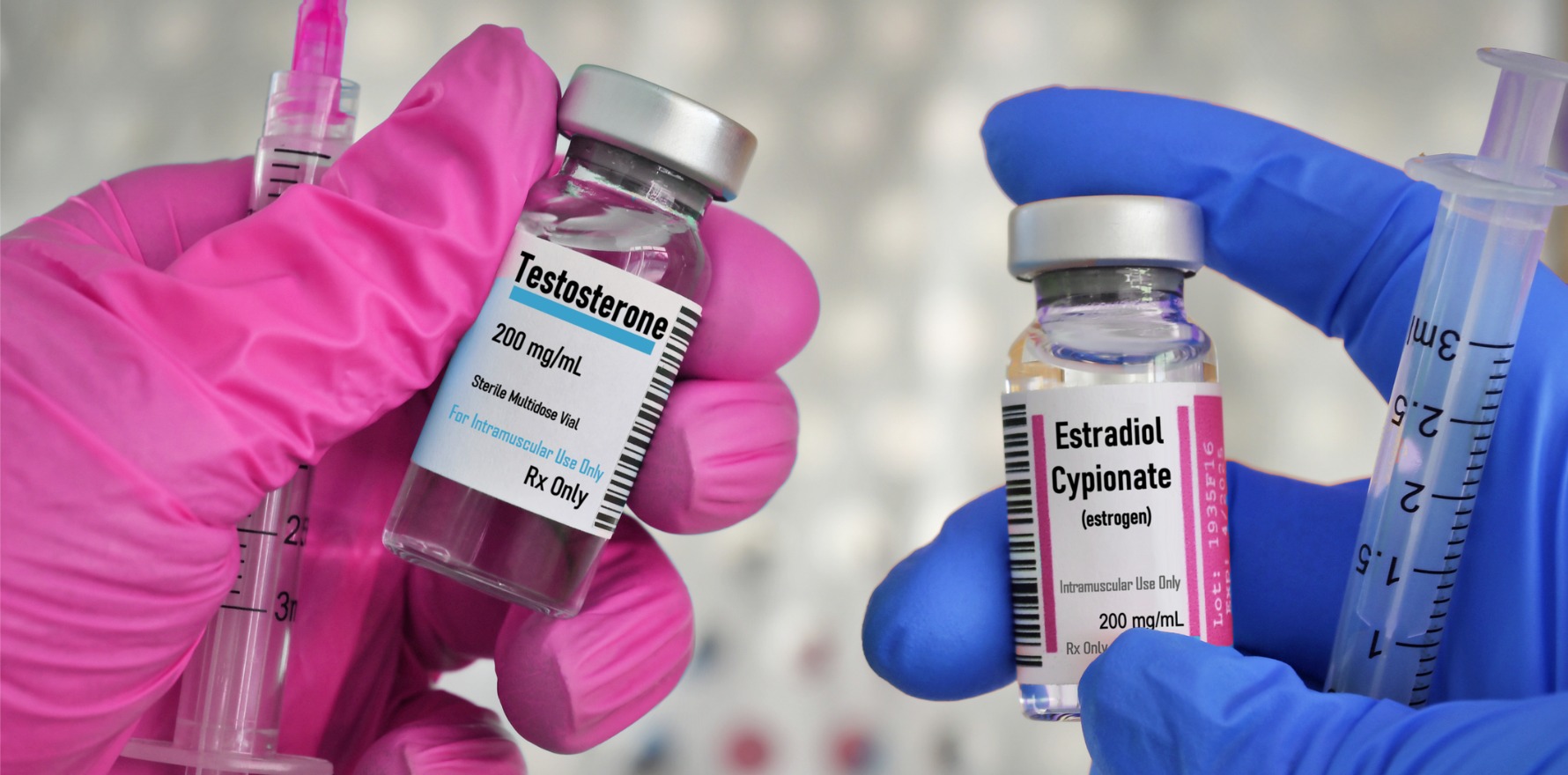Australian government and our health institutions have permitted a lowering of medical standards in this area of paediatric care, and transactivist organisations have stepped into the vacuum of inaction.
On 10 April 2025 the ABC published, “Prescribing puberty blockers to trans teenagers is not as morally or medically contentious as it seems”[i]. The article was authored by Rach Cosker-Rowland, an associate professor in Moral and Political Philosophy in the school of Philosophy, Religion and History based at the University of Leeds.
Ms Cosker-Rowland, who inexplicably has strong opinions on paediatric medical care provided on the other side of the world, suggests that there is a “clear scientific consensus that puberty blockers can do great good and avert severe harm, and we have good evidence that they do not cause harm”.
Ms Cosker-Rowland concedes that medications are prescribed to children with gender dysphoria or gender incongruence, and in so doing tacitly acknowledges the expanding spectrum of children currently administered these treatments.
In the article, Ms Cosker-Rowland suggests puberty blockers are “entirely reversible”, spending most of the article focusing on puberty blockers exclusively, without venturing into the realm of cross-sex hormones that are the almost inevitable next step in the affirmation pathway. The article does not list the known negative effects of puberty blockers on growth affecting final height, the potential negative effects of stymying normal pubertal hormone changes on the developing brain, the risk of life-long sexual dysfunction (anorgasmia), the questionable nature of puberty blocker “reversibility”, or acknowledge the highly contested and poor-quality evidence base upon which puberty blockers and cross-sex hormones are currently used.
Ms Cosker-Rowland casually refers to the use of puberty blockers in children with precocious puberty (“cis” children) without acknowledging that these children receive medications to manage an abnormally timed puberty compared to those treated for gender-related concerns.
Perhaps most strikingly, the summary provided avoids discussion of the universal need for children to be provided fertility-preserving options prior to treatment to compensate for the well-recognised risk of infertility and permanent sterility that follows treatment with puberty blockers and gender-affirming hormones.
It is worth noting the complex ethics associated with offering fertility- preserving options to children that rely on technologies that are yet to be invented.
According to Ms Cosker-Rowland, puberty blockers are “only prescribed to trans teenagers after several further steps beyond such a diagnosis have [sic] been completed”, including counselling and fertility preservation. This is an extraordinary claim when one considers the operation of tertiary services in Australia.
The Queensland Health External Clinical Service Evaluation of the Queensland Children’s Gender Service (2024) clearly indicated that, despite high levels of psychiatric comorbidity, children receiving care at the service had to seek psychological treatment, and assessment for co-occurring conditions, outside of the service. A limited audit concluded that a psychiatric assessment occurred for only 20 – 30% of children in the service, which paradoxically led the panel to recommend that the department increase the amount of non-medical staff (allied health and nursing) to address patient demand.
The expert witness reports outlined in the April 2025 Re: Devin Family Court judgement, which related to an unnamed gender service, confirmed that not only were assessments by non-medical staff pivotal to diagnosis and impetus to treat a child with interventions, but also that fertility-preserving options provided to pre-pubertal children were of questionable reliability.
With regards to the inference that gender-affirming treatment reduces the need for gender-affirming surgery in adulthood, the study used by Ms Cosker-Rowland to substantiate this position relies entirely on self-report, rendering it inherently vulnerable to bias. Putting aside the significant limitations that occur when extrapolating adult experiences and expectations to that of children, the study conflates adults wishing for surgery with those that report having undergone surgery, erasing any hope the study could be meaningfully applied to decision-making in paediatric health.
Despite alleging that the benefit of childhood interventions is that it reduces the costs of gender-affirming procedures in adulthood, Ms Cosker-Rowland neglects to explain that avoidance of usual pubertal development leads to failure of genital tissue development, placing youth who have transitioned earlier in development at higher risk of surgical complications should gender-affirming surgeries be sought in future.
The Western Australian study referred to in the opinion piece relies on a retrospective (not prospective) cohort study, entirely dependent on the presence of accurate documentation within the clinical files. The definition of desistence by the investigators related solely to those who had ceased treatment, re-identified with their “birth-related” (biological) sex, communicated this to the treatment team and had this documented unequivocally in the file.
In such a study, it is unlikely that the file audit would have captured all patients who had decided against continued medical treatment due to the recognised phenomenon (which the Western Australia team acknowledged) that a significant proportion of patients who experience regret do not disclose this to the treating doctor or team.
Combined with the relatively short follow-up period, the suggestion that the Western Australian study could confidently identify that only 5.3% of child and adolescents of the service had detransitioned is potentially a significant under-estimation of the rate. Even if such a rate were accurate, it is not of passing significance that this statistic suggests that one in 20 children may be given treatments with irreversible side effects including potential permanent sterility for a condition that may later be a source of regret and potential harm.
The opinion piece fails to mention that there is no recognised diagnostic system which can confidently predict which child will persist in their trans identity (with or without symptoms of gender dysphoria) in adulthood, and which will not. Combined with an unknown risk of detransition and regret, this culminates in an unacceptable situation in which doctors, unable to confidently predict which child will persist, are required to place blind faith in the hope that their recommendations will prove to be correct long-term.
Beyond claims that puberty blockers and cross-sex hormones improve the mental health of youth with gender-related concerns, the mantra is repeated that the treatment of children will lead to reduction in suicide.
Related
This is the most dishonest and emotionally coercive concept that has been repeated by the trans rights movement and experts influenced by gender ideology.
There is a difference between self-reports of suicidal thoughts compared to the incidence of the act itself, and this is significant and almost always conveniently overlooked in reporting on this sensitive subject. In recent years, several large studies (Biggs 2000, Biggs 2022, Appleby 2024) have clearly indicated that puberty blockers and gender-affirming hormone treatment do not reduce the rates of suicide in trans-identified youth.
Significantly, a 2024 Finnish study indicated it is more likely that other co-occurring mental health conditions are causally associated with suicide and not a diagnosis of gender dysphoria per se. This finding highlights that treatment of other issues (for example trauma, autism, mood disorders etc) are of prime importance when working to reduce this tragic outcome and not the hasty provision of puberty blockers, cross-sex hormones or surgery.
The lack of commitment by professionals to promote proper evidence-based medicine to inform treatment, including randomised controlled trials, is not something to be dismissed as irreverent or trite, regardless of the intersectional vulnerabilities of the group in question. When medical treatments are provided to children that have known irreversible effects and serious side effects, usual processes include the involvement of hospital ethics committees, or treatment is provided within the clinical governance structure of clinical trials.
For far too long in Australia, services and medical practitioners have bypassed this process in the name of “human rights” or “trans rights” and have asserted claims that minority group demands for active treatment be prioritised to the detriment of usual processes.
The result is that vulnerable youth are continuing to be placed at a disadvantage by health providers without access to high-quality paediatric medical evidence to inform decision making.
The situation has been perpetuated by the establishment of the Australian Standards of Care and Treatment Guidelines (ASOCTG) which have been erroneously interpreted as the accepted national clinical guidelines. This narrative review (which did not utilise NHMRC grades of evidence or similar) was co-authored by members of AusPATH, self-described as, “the national peak body representing, supporting, and connecting those working to strengthen the health, rights and wellbeing of all trans people”.
Somewhat paradoxically, the document was then ostensibly endorsed by AusPATH, creating a veneer of professional peer review.
The lack of regulation of the title “Australian Standards”, which conveyed primacy, nationwide acceptance and a high standard of evidentiary review, was pivotal to its widespread acceptance and implementation.
Unsuspecting doctors and the media have continued to rely upon this material, unaware that the references used to inform the guidance therein are outdated, and that the document has never been endorsed by either the Department of Health and Aged Care or any specialist medical college as the benchmark for practice in this area.
Updated versions of the ASOCTG since 2018 have continuously failed to reflect international reviews including Finland, Sweden, Norway and the UK (2023 Interim Report, 2024 Final Cass Report). All of these reviews recommended restrictions be placed on paediatric gender-affirming care which was described by some as “experimental”.
It has become clear that the Australian government and our health institutions have permitted a lowering of medical standards in this area of paediatric care, and transactivist organisations have stepped into the vacuum of inaction.
Individuals and organisations have been effective at promoting the ideological capture of professional bodies and silencing of professional dissent, bolstered by the knowledge that accusations of gender-based discrimination aimed at those who voiced objection were effective.
The rolling public health experiment on children struggling with gender-related healthcare concerns that has been executed without usual guardrails needs to stop. We need a federal commitment to monitor the outcomes in these children long-term. We must brace ourselves for the harm that may have already been caused to some.
We must call time on the circulation of misinformation by mainstream media. They must affirm a commitment to report medical information to the public sensitively, accurately and free from ideological posturing. Affected children and families deserve nothing less.
Dr Catherine Llewellyn is a consultant child, adolescent, addiction and adult psychiatrist. Dr Llewellyn is a fellow of the Royal Australian and New Zealand College of Psychiatrists (RANZCP) and a fellow of the Australasian Society of Lifestyle Medicine (ASLM).





